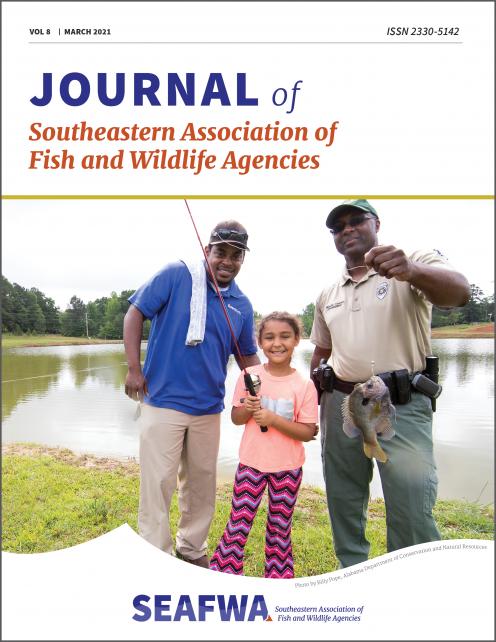Impacts of Introduced Blueback Herring on Piscivorous Sportfish in a Southeastern U.S. Reservoir
Non-native species have sometimes been introduced to increase forage availability and sportfish production, but such introductions have potential for negative as well as positive effects. In 2010, non-native blueback herring (Alosa aestivalis) were found in Lewis Smith Lake, Alabama, due to illegal stocking. Our objective was to quantify food habits and determine potential impacts of blueback herring introduction on body condition and growth of important sportfishes in Lewis Smith Lake. Largemouth bass (Micropterus salmoides), Alabama bass (Micropterus henshalli...
